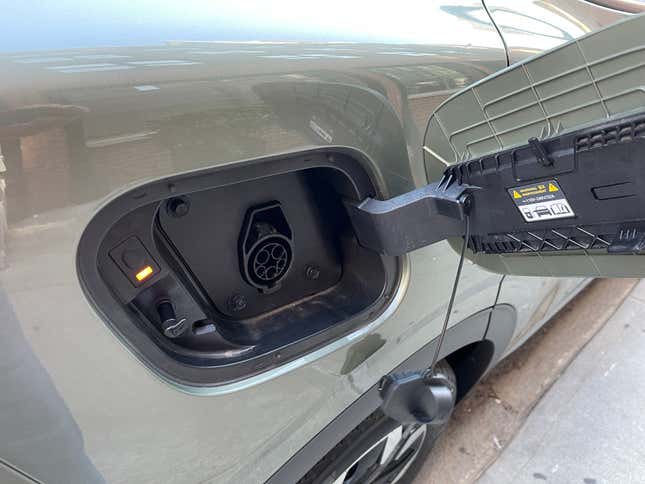Plug-In Hybrids May Not Be The Small First Step Towards EV Adoption After All

Plug-in hybrids are proving to not be the transitional bridge between gas-powered cars and electric vehicles many folks were hoping for. That’s a damn shame because when used properly, PHEVs are absolutely fantastic. A study from JD Power is shedding new light on how and why customers are unsatisfied with their plug-in hybrids.
2024 BMW X5 50e PHEV Shows Why Plug-In Hybrids Are The Way To Go
Right now, there are 41 PHEVs for sale in the U.S. – that’s 12 more than there were just two years ago. For the most part, the cars can go between 25 and 40 miles on a full charge and can be juiced up at home or at a public Level 2 charger before the gas motor kicks in. Some automakers are positioning PHEVs as a bridge between gas-powered cars and electric vehicles to get folks to dip their toes in the world of electric cars, but it’s doesn’t seem to be working, as Automotive News explains:
“There’s been a lot of focus on creating intermediary steps for consumers who may not be ready to fully adopt a battery-electric vehicle yet,” Brent Gruber, executive director of the EV practice at J.D. Power, told Automotive News. But the experience of plug-in hybrid owners “really isn’t favorable in comparison to battery-electric vehicles.”
[…]
Overall satisfaction on a 1,000-point scale with PHEVs is 669 while mass-market satisfaction with BEVs is 716, according to J.D. Power consumer satisfaction data. Satisfaction with premium EVs is 738 on a 1,000-point scale.
“Plug-in hybrids have their merits for certain people, but when you look at that ownership experience, it’s certainly not as positive as battery-electric vehicle ownership experiences,” Gruber said.
PHEV sales are actually declining right now. Through August, plug-in hybrid vehicles represented just 1.9 percent of total vehicle sales. That works out to a slight decrease from July, JD Power tells AutoNews. For reference, fully electric vehicles made up 9.4 percent of the market and conventional hybrids at right at 10.7 percent. There’s a big gulf there between those types of vehicles and PHEVs. It’s not like the other two categories have a ton more offerings either. In the U.S., there are currently 39 conventional hybrids on sale and 60 electric vehicles.
Photo: Andy Kalmowitz / Jalopnik
Here’s why this lack of sales may be happening and what OEMs should be doing, according to Automotive News:
PHEVs are costly to purchase and maintain because they have two powertrains. The ownership experience doesn’t always align with the premium price point, especially as less-expensive BEVs enter the market.
The average transaction price for a PHEV in the compact SUV category is $48,700, while compact hybrid crossovers are $37,700 and compact battery-electric SUVs are $36,900, according to J.D. Power.
“These findings should really frame the discussion and decisions around how OEMs plan through this transition — going from ICE to battery-electric vehicles,” Gruber said. The transition isn’t always smooth, but PHEV owners tend to have a worse experience than EV owners, he added.
[…]
Better access to reliable information — such as how a PHEV’s electric range could fit a customer’s needs — can help address issues surrounding consumer adoption, Gruber said.

Photo: Andy Kalmowitz / Jalopnik
Basically, what he’s saying is that dealers need to do a better job of educating consumers because once they realize charging isn’t that big of a hassle (and they don’t need that much range) people are generally happy with the EVs and PHEVs they’ve purchased.
I’ve long said the plug-in hybrid is an excellent car for today’s automotive world. I know it’s not a long-term solution, but if you use your PHEV the correct way (charging it up often), then it’s a really good piece of technology.







